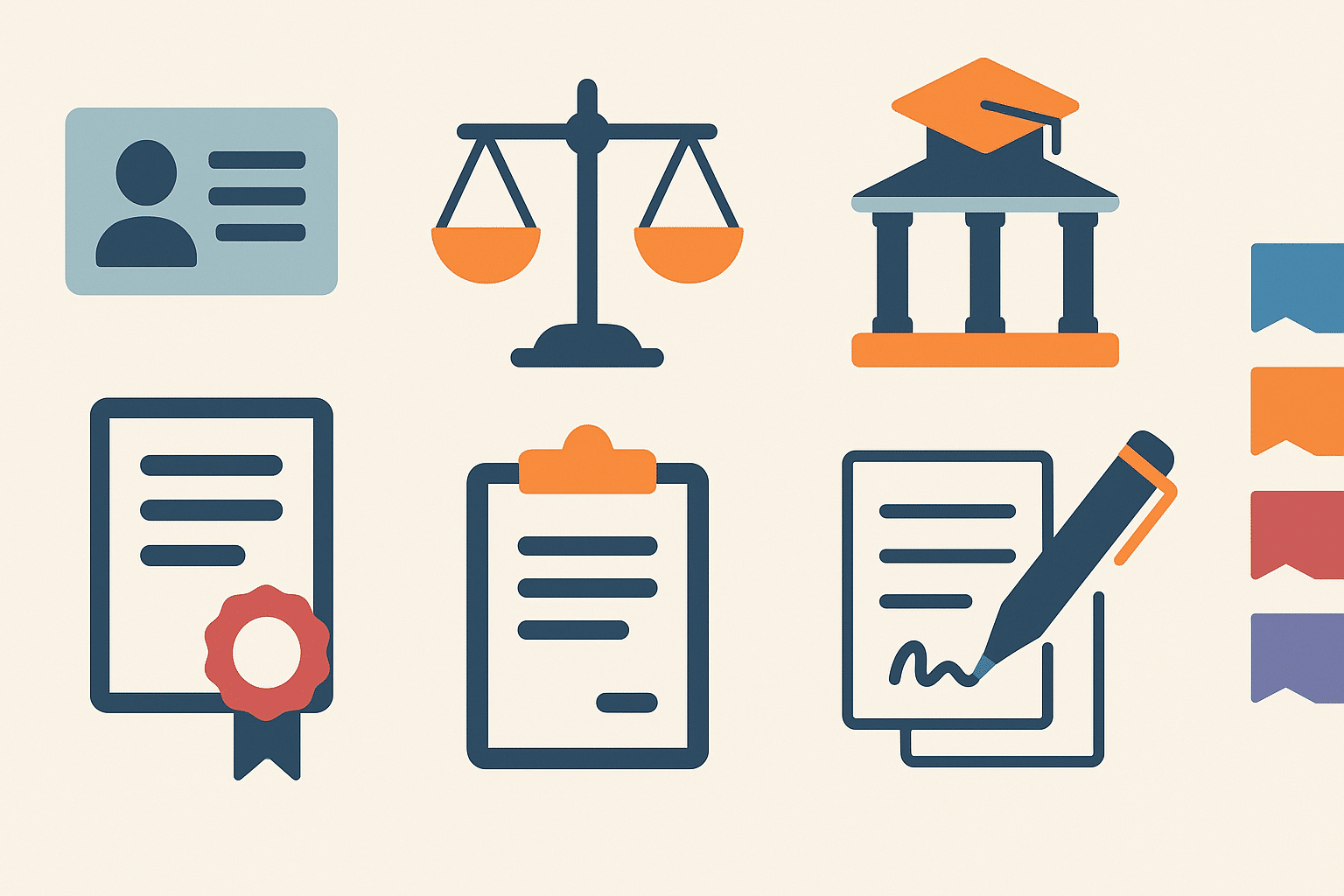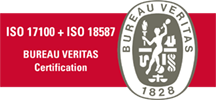Certified Translation Guide: Everything You Need to Know
Certified translation is essential for visas, universities, and legal processes, as submitting documents without it can cause serious delays. Whether for a visa application, university admission, or an important business process, the stakes are high, and in 2025 the need for certified translations is greater than ever, as legal, academic, and immigration authorities apply increasingly strict requirements.

This guide explains what certified translation is, why it matters, and how to ensure your documents meet the official standards in Portugal, Spain, France, Germany, the UK, Brazil, and Angola.
What Is Certified Translation?
Certified translation is the precise, word-for-word rendering of an official document, accompanied by a signed statement from the translator or translation company attesting to its accuracy. It ensures the translation is both complete and faithful to the source, making it valid for legal, academic, and governmental use.
Certified vs. Notarized vs. Sworn
- Certified translation: a signed declaration of accuracy and completeness by the translator or agency.
- Notarized translation: adds a notary’s stamp verifying the translator’s identity, not the translation quality.
- Sworn translation: in some countries (e.g., Spain, France, Germany, Brazil), only state-appointed or sworn translators may certify translations.
Common Documents Requiring Certified Translation
Typical examples include:
- Birth, marriage, and death certificates
- Diplomas and academic transcripts
- Contracts and affidavits
- Immigration and residency files
- Bank statements and tax returns
- Medical records and vaccination histories
These documents are commonly required by courts, universities, embassies, immigration offices, and government ministries. Accuracy and compliance are non-negotiable.
Legal and Regulatory Requirements by Region
Each country has its own rules on who can issue certified translations. Understanding these differences is essential in 2025.
| Country / Region | Who Can Certify? | Notarization Needed? | Typical Recipients |
|---|---|---|---|
| Portugal | Translator + sworn statement before a lawyer or public notary | Required | Courts, ministries, universities |
| Spain | Sworn translator (traductor jurado) | Required | Courts, ministries, official bodies |
| France | Traducteur assermenté (court-appointed) | Required | Tribunals, prefectures, government |
| Germany | Vereidigte Übersetzer (sworn translators) | Required | Legal and official authorities |
| UK | Qualified translator or agency | Often required | Home Office, universities, embassies |
| Brazil | Tradutor Público Juramentado (state-appointed) | Required | Legal, commercial, and government use |
| Angola | Translator + sworn statement before a lawyer or public notary | Required | Courts, notaries, government entities |
Country-Specific Highlights
- Portugal: Certified translations must include a sworn statement made before a lawyer or a public notary, confirming the validity and accuracy of the translation. A translator cannot simply sign or stamp the translation on their own for it to be accepted.
- Spain: Only sworn translators appointed by the Ministry of Foreign Affairs can produce valid certified translations.
- France: Certified translations must be done by court-appointed sworn translators (traducteurs assermentés).
- Germany: Requires sworn translators (vereidigte Übersetzer), officially registered in each federal state.
- UK: Certification is more flexible; translators or agencies can certify, but notarization may be needed for embassy submissions.
- Brazil: Sworn public translators (tradutores juramentados) are legally mandated for official use.
- Angola: Certified translations must also be accompanied by a sworn statement before a lawyer or a public notary. Only with this validation is the translation considered legally valid by courts, notaries, and other official authorities.
Certified Translation Use Cases
- Immigration and visas: residency, citizenship, or work permit applications.
- Academic admissions: diplomas and transcripts for universities in Portugal, Spain, France, Germany, UK, Brazil, and Angola.
- Legal processes: contracts, inheritance cases, court submissions.
- Business and finance: tax filings, company registrations, cross-border deals.
- Healthcare: medical reports and vaccination histories.
Certified Translation Process: Step by Step
- Preparation – confirm requirements with the receiving authority.
- Choose a provider – select a qualified, preferably ISO 17100-certified translator or company.
- Translation & proofreading – at least two professionals review the work.
- Certification – signed statement of accuracy, and when required, notarization or sworn certification.
- Delivery – digital or hard copy, depending on the destination.
- Submission – attach originals or certified copies if required.
How to Choose a Certified Translation Provider
- Look for ISO 17100 certification (quality assurance).
- Work only with native, specialized translators.
- Ensure proofreading and QA are included.
- Demand confidential handling of sensitive documents.
- Verify experience with country-specific requirements (e.g., sworn translators in Spain, France, Brazil, and Germany).
Costs and Turnaround in 2025
The cost of a certified translation can vary depending on the language pair, document type, and whether additional steps such as notarization or a sworn statement are required. Turnaround times also depend on the complexity of the material and the urgency of the request—standard documents are usually delivered quickly, while more technical or extensive projects may take longer.
For an accurate estimate tailored to your specific needs, we recommend requesting a personalized quote. Our team will assess your documents and provide clear timelines and costs before you proceed.
Trends in 2025
- Digital certified translations are increasingly accepted (Portugal, Spain, UK, France, Germany).
- Regulatory tightening in the EU: authorities are less tolerant of informal or uncertified translations.
- Brazil and Angola continue to rely heavily on sworn/legalized formats.
- Technology accelerates turnaround, but human expertise remains indispensable.
- Confidentiality and data security are now top client concerns.
Final Word
In 2025, certified translation is not just a formality—it’s a safeguard against delays, rejections, and legal risk. Each country has specific rules: from sworn translators in Spain, France, Germany, and Brazil to flexible certification in Portugal and the UK, and evolving requirements in Angola.
At M21Global, we combine expert human translators with ISO-certified processes to ensure your documents are accepted worldwide. Ready to move forward? Request a free quote and see how simple certified translation can be.

